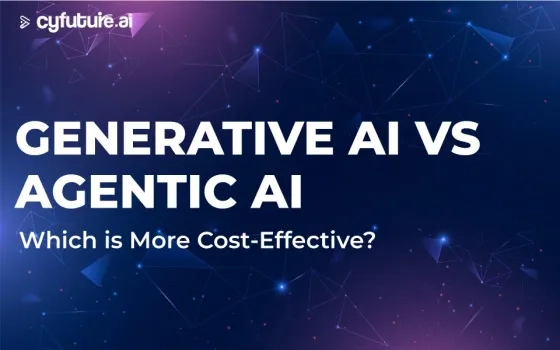Data science has surged in prominence in recent years. The resulting buzz will linger for years to come. The sector is seeing an increasing number of aspirants and enthusiasts interested in learning more about the subject.
Today's age considers data science to be one of the top careers of the twenty-first century, thus this growing tendency should come as no surprise. Almost everyone wants to jump on the Data Science bandwagon and gain experience.
Obtaining the necessary expertise and experience, on the other hand, can be more difficult than anticipated. Beginners in the area of Data Science commit plenty of critical mistakes. Even the most experienced specialists are prone to making errors from time to time.
Nobody likes to make mistakes or keep repeating inaccuracies in any element of their lives. The nicest aspect about Data Science is that every mistake you make provides you with an opportunity to reflect on and learn from your mistakes.
It's sometimes crucial to figure out why these errors happen. Rethinking and reviewing objective errors, whether they are practical, theoretical, or mental, can help you achieve Data Science success.
We hope to find solutions and comprehend the possible reasons for such critical errors in this essay. This article will offer a few assertions with a combination of technical and practical features.
However, it is crucial to remember that Data Science is a broad discipline, and fans may make a variety of other mistakes. If you're curious about what these potential mistakes are and how many of them you make on your own, read on for an in-depth analysis and breakdown in this article and stick with it until the conclusion.
Let's get started without further delay so we understand why these errors occur and how you may avoid them.
1. Pursuing Data Science without having any interest
Both Data Science and Artificial Intelligence necessitate a strong desire to study new concepts and expand one's expertise.
Even the most challenging topics will not be too difficult for you to grasp if you are truly devoted to the field of Data Science. And, finally, with a little bit of attention and work, you will be able to acquire the solutions.
If, on the other hand, you lack passion and are studying Data Science for the wrong reasons, there is a good possibility you will not be able to get the required outcome.
2. Ineffective Data Visualizations And Incorrect Dataset Analysis
You should have a good understanding of your dataset and what its inherited contents are. You will be able to present a coherent thinking process and suggestions to tackle the problem if you have sufficient information and theoretical intuition about the work at hand.
Exploratory Data Analysis is the first and most important phase in your Data Science project's end-to-end process. It assists you in comprehending the dataset's properties as well as the data available to you. It is used to understand what the data can tell us, in addition to formal modelling or hypothesis testing.
As a result, it's critical that you experiment with various visualisation strategies to gain a clear grasp of the dataset and relevant data for tackling difficult challenges or jobs.
3. Ineffective Data Cleaning
One of the primary reasons you are unable to adequately cleanse and prepare your data is that you lack a comprehensive grasp of the data and do not know how to carry out the cleaning process.
Another reason is that you didn't do proper Exploratory Data Analysis, which causes problems because you don't know which features and characteristics are more important to the task at hand.
As a result, you're more likely to preserve the useless and superfluous data that isn't needed to solve the problem rather than the valuable and important data.
4. Lack Of Mathematical Intuition
In Data Science, mathematics is extremely important, especially in the domains of Machine Learning, Deep Learning, and Computer Vision.
Linear algebra, probability and statistics, and calculus are important ideas to grasp in order to grasp the intuitive knowledge of modelling and visual structures in order to build Machine Learning models.
The majority of Data Science relies on your ability to solve issues using numbers. Most jobs can be performed quickly if you can use your programming talents to translate your mathematical understanding into code.
Data Science is based on the notion of math. As a result, keep improving your math skills and solving a variety of tasks to ensure that you can effectively incorporate your mathematical knowledge into your machine learning models.
5. Errors in Programming
Working on your coding skills is one of the first things you should do if you want to be a data scientist, as coding is a must for most data science projects.
You'll be able to avoid grammatical problems in your Data Science projects while honing your programming abilities. Syntax mistakes should be avoided throughout Data Science initiatives and restricted to programming software projects.
Programming abilities are boundless and may be learned over time. Concentrate on the fundamental concepts and continue to learn and practise. You will be able to simply solve the bulk of your faults if you are persistent and interested.
You can even become a coding expert with enough experience and be able to programme less complex Data Science projects from start without any additional needs.
6. Inadequate knowledge and research
Data Science isn't complete without research.
Use the different references and resources accessible to you on the internet as a first step before confronting complex or difficult jobs.
It is critical to ensure that you understand what you are doing in Data Science. Otherwise, you'll soon find yourself stranded in a deep, dark jungle. Only a thorough grasp of your fundamentals and fundamental principles will enable you to plunge out and escape this monster.
You must continue to investigate and have a thorough comprehension of the numerous topics you meet during your learning process in order to allow yourself and your brain to digest more meaningful thoughts and visions.
This method will assist you in mastering the skill of these subjects and finally succeeding!
7. Over-and-Under-Fitting
Overfitting occurs when a model you create fits so well during training that it incorporates non-essential training points such as outliers and noise into your answer. This problem causes the training model to improve over time, yet it causes a problem when testing.
Underfitting occurs when your model does not fit properly, resulting in a variety of problems. The model is unable to fit the dataset during training, resulting in essentially little improvements in both the train and test datasets despite running numerous epochs.
Some of the most successful techniques to overcome these challenges that occur during overfitting and underfitting include utilising a more balanced dataset, applying dropout or batch normalisation layers, increasing or decreasing the amount of trainable parameters, better hyperparameter tuning, and so much more.
8. Ineffective research or refusal to seek additional assistance
Because Data Science is such a broad and often difficult area, it's easy to become stuck and not discover a solution to a specific problem.
During these moments, the best course of action is to just seek assistance! The Data Science community is knowledgeable and supportive. It's a welcoming community that helps aficionados and newcomers get the best outcomes possible.
But don't get the wrong notion about seeking assistance. The ultimate objective must still be to gain the necessary knowledge and educate oneself on the various options. Continue to study and practise!
9. Not Trying Machine Learning Algorithms For A Specific Task
Despite the fact that you may have built a machine learning or deep learning model that assists you in achieving the intended outcomes, you can always measure, enhance, and develop your model.
As a result, it's critical to make sure you're building the finest products for deployment. And, to be honest, there is no reliable way for determining which is the most successful. So, have some fun and see what other concepts and models you can come up with in the time you have.
10. Not Keeping Up to Date with the technology
Data Science and Technology are the fastest-growing areas of our time, and they will have a significant influence in the near future.
In the discipline of Data Science, there is a constant spectrum of evolution. In Data Science, a trendy technique or idea today may not be so popular next year or even in the next few months. The continual growth of architectures, structures, and models in machine learning is a basic illustration of this.
I highly encourage all Data Science enthusiasts and aspirants to explore new ideas and stay current on all emerging trends in this fascinating field that we all admire.
Conclusion
Data Science is a vast and diverse discipline. There are a plethora of options available, with many more to be discovered. Mistakes can happen deliberately or unconsciously in such a vast range of themes, concepts, and issues.
As a Data Science aspirant or enthusiast, making mistakes, blunders, or errors is perfectly acceptable. The more you make errors, the more you learn. By correcting and fixing your errors, you may strengthen yourself.
Beginners in Data Science frequently make the mistake of studying the topic without any genuine passion in the discipline. Make sure you acquire an interest or select an alternative option that suits you.
In the early phases of your project's development, data cleaning, data visualisation, and data analysis (particularly EDA) are critical. Ascertain their proper use to create the ideal cleaned and balanced dataset for the rest of your project.
Mathematics and programming abilities are required for the development of intermediate and advanced assignments, as well as the resolution of any difficult problem.
Investigate the numerous concepts and obtain a thorough grasp of all of your project's important themes. Don't give up no matter what, and strive for the greatest outcomes possible.
If you're trapped in a difficult situation and can't seem to solve it, it's in your best interest to seek assistance from the internet or specialists. Other concerns, like as overfitting or underfitting, can be readily addressed via careful research and execution of concepts.
Finally, keep experimenting with new ideas and don't stop until you've created a successful answer. Keep up with the many research articles and developments that are continually going place in the area of Data Science.














